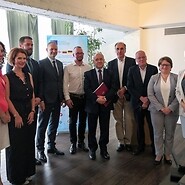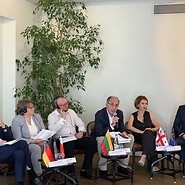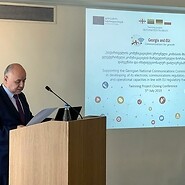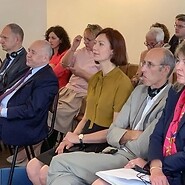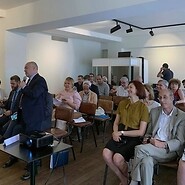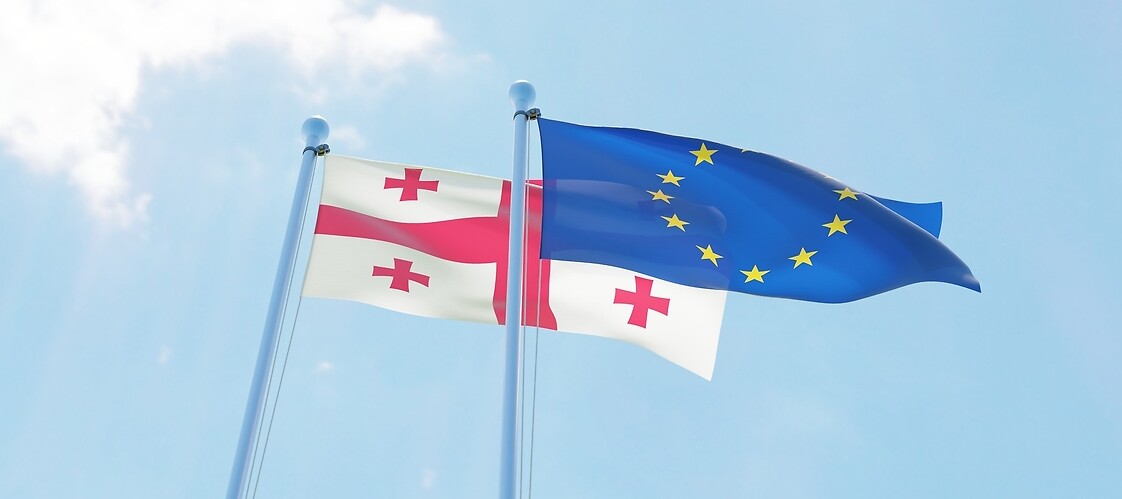
EU Twinning project supporting the Georgian National Communication Commission wraps up activities
05 July 2019
19 month project with over 190 expert missions of Lithuanian, German and Polish experts helped define Georgian secondary legislation and guidelines on communications in line with EU standards.
On Friday, 5th July 2019, the Closing Conference of EU-funded Twinning Project” Supporting the Georgian National Communication Commission (GNCC) in developing of its electronic communications regulatory framework and operational capacities in line with EU regulatory framework” (hereinafter – Twinning Project) has been held in Tbilisi.
At the Closing Conference, speakers presented the results achieved by the project during its 19 months of its implementation and discussed the sustainability and future perspectives of Twinning project outputs. Over 190 EU expert missions with total of more than 800 working days has been implemented as well as 6 study visits for exchange of practical implementation experience has been organised. All these activities were implemented with the objective to support Georgia in development of its telecom regulatory framework in line with EU regulatory framework which consequently shall ensure the provision of competitive environment for all market players in the Georgian electronic communications sector.
The Twinning project helped develop a draft package of amendments to the secondary legislation of Georgia on electronic communications in line with relevant EU legislation, including:
- Rules for Provision of services and Protection of consumer rights;
- Authorisation of General Permission to engage in electronic communications activities;
- Regulations for use of Radio frequencies under general permission;
- Rules for Public consultations and proposals for regulatory framework on Universal Services.
This is an additional step of Georgia and the beneficiary institution GNCC on the way of implementation of EU-Georgia Association Agreement. The proposed improvements have been drafted considering the best regulatory practices of implementation of EU Communications Regulatory Framework as well as taking into account national circumstances in Georgia and thus should ensure gradual approximation of Georgian legislation to the relevant EU Directives.
Apart from the proposals for amendments of national legislation, the Twinning Project has developed several guidelines with practical regulatory advices which shall ensure smooth implementation of best EU regulatory practices on:
- Broadband infrastructure development (incl. infrastructure sharing, construction, State aid, broadband and mobile coverage maps, quality of services and network neutrality)
- Market analysis methodologies
- Spectrum award methodologies
- Network Integrity Incident Notification procedures
- Safer Internet Hotline activities
- Roaming regulatory framework
The project documents have been translated in Georgian, communicated and discussed with the relevant stakeholders during workshops, seminars and trainings that were organised during Project implementation.
The event was attended by the Head of Cooperation of the Delegation of the European Union to Georgia, Director General for European Integration of the Ministry of Foreign Affairs of Georgia, Ambassador Extraordinary and Plenipotentiary of the Republic of Lithuania to Georgia, Ambassador Extraordinary and Plenipotentiary of the Republic of Poland to Georgia, representatives of the Embassy of Germany to Georgia, Twinning project leaders and key experts both from EU Member States and the beneficiary Institution (GNCC), as well as officials from the Ministry of Economy and Sustainable Development of Georgia, stakeholders of Georgian electronic communications industry and other relevant bodies.
The Twinning project was launched in December of 2017 and has been implemented by the Communications Regulatory Authority of the Republic of Lithuania (RRT) in partnership with the President of the Office of Electronic Communications of the Republic of Poland (UKE), German Federal Ministry for Economic Affairs and Energy (BMWi) and Central Project Management Agency (CPMA).
Background:
Twinning is a European Union instrument for institutional cooperation between Public Administrations of EU Member States and of beneficiary or partner countries. Twinning projects bring together public sector expertise from EU Member States and beneficiary countries with the aim of achieving concrete mandatory operational results through peer to peer activities.
For additional information, please see: https://ec.europa.eu/neighbourhood-enlargement/tenders/twinning_en








